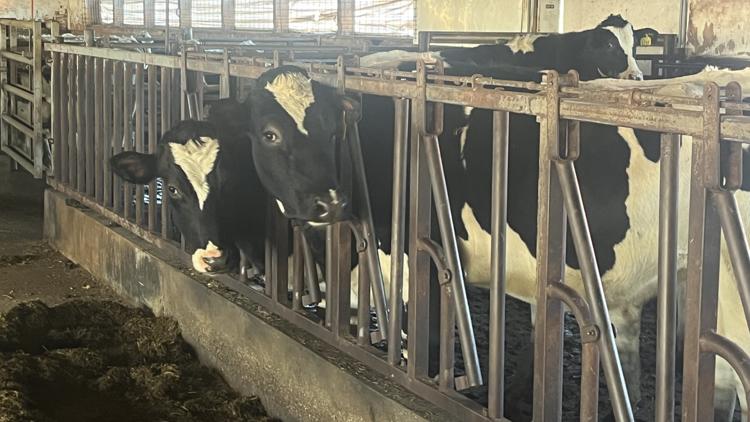DURHAM, N.H. — Research has shown that adding an unusual additive to livestock feed could be a robust solution for the planet.
Red seaweed, produced in Hawaii, can reduce methane emissions by up to 80%. A study at the University of New Hampshire aims to find the most stable way farmers can use the product to feed their cattle.
Cattle have a bad rap as the number one agriculture source of climate-changing greenhouse gases worldwide. Annually, a single cow will belch more than 200 pounds of methane.
"Methane is a potent gas, about 28 times more potent than carbon dioxide," explained Andre Brito. Brito is an Agriculture, Nutrition, and Food Systems professor at the University of New Hampshire's College of Life Sciences and Agriculture. He and other researchers have been looking for ways to make cows more sustainable and less gassy for over a decade.
That research has focused on seaweed, but unlike the brown varieties like rockweed found in the Gulf of Maine, adding a small amount of red seaweed native to Hawaii has had a much more significant impact on reducing methane emissions.
"There have been 50 to 60 percent reductions in beef and dairy cows," Brito said.
SeaGraze, manufactured by Symbrosia Inc., blocks some hydrogen and carbon atoms from forming methane, allowing cows to use less energy to produce more milk.
The main acting ingredient is a natural compound called bromoform. However, preserving its potency over time is still a question mark.
"It's very volatile, and the company is trying to figure out how to keep this product stable," Brito added.
At UNH's organic dairy research farm, scientists are studying whether dairy cows prefer eating feed mixed with two versions of the seaweed.
Ph.D. student Atik Rahman shows us Symbrosia's freeze-dried product, which is powdered, and its seed oil is infused with seaweed strains. This process is known to preserve potency over time and is a possible sustainable option for farmers.
Over ten days, the products are added to hay, corn silage, and grain and fed to a dry cow. The cow prefers feed spiked with the seaweed oil product.
"If they eat well, then the milk production also goes up. We want that kind of product from the company," Rahman enthused.
Researchers plan to measure emissions from the cows used in the study in February.
Farmers could one day be paid for carbon reduction and removal when SeaGraze does come to market.



